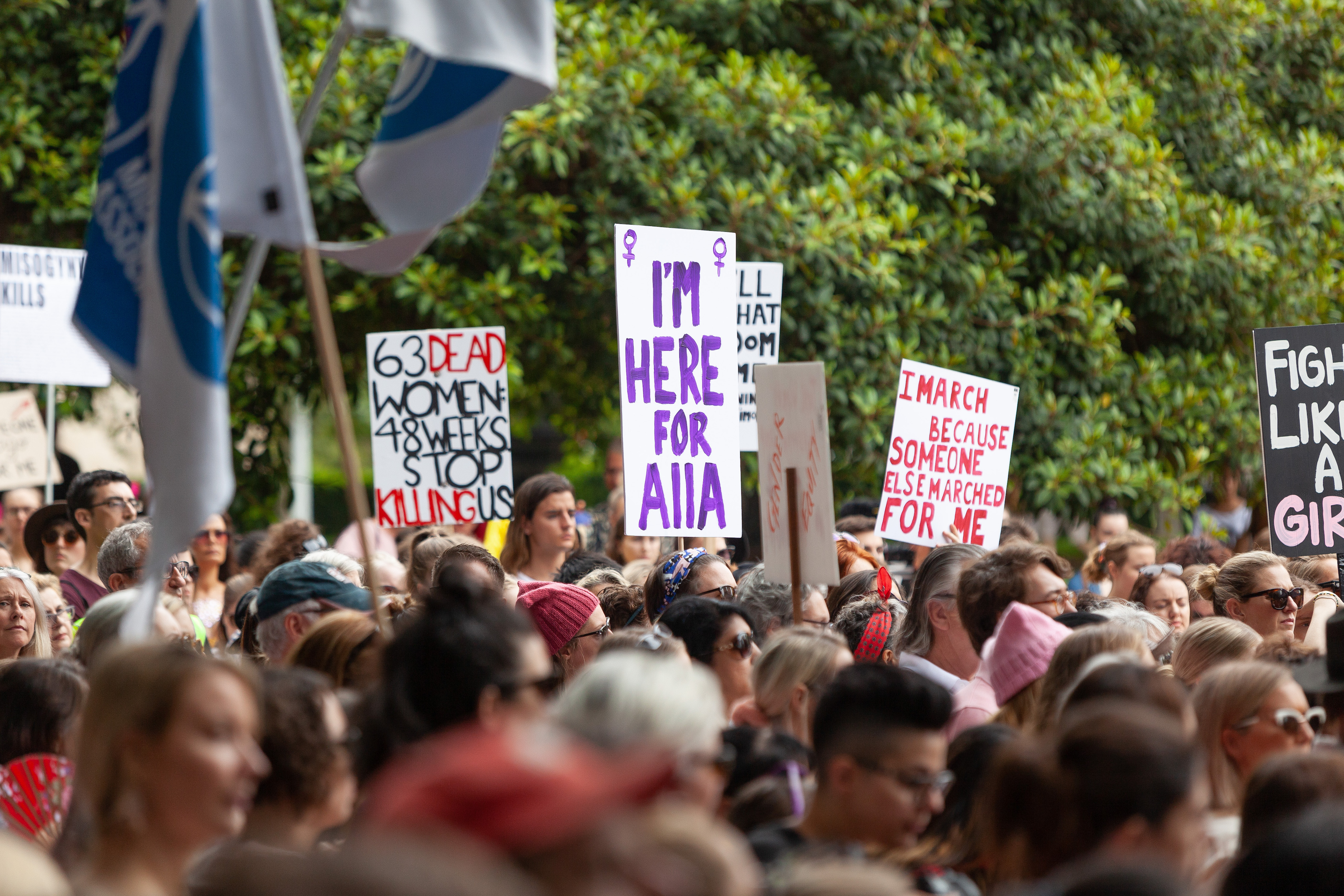
Health & Medicine
We’ve lost the wisdom of Solomon

The media reporting of domestic violence is important and needs to be responsible if it is to avoid fuelling or excusing violence
Published 16 March 2020
The shocking murders of Hannah Clarke and her three children, Trey, Laianah, and Aaliyah, by their father has left us as a society reeling and looking for lessons out of this tragedy.
But of the many issues that could be raised, one that stands out lies with the role of the media and the reporting on women and their children murdered in the context of domestic and family violence.

The question arises about whether the media (and social media more generally) play some on-going role in the deaths of these women and children?
It is a confronting issue to address. However, it has become entirely predictable that as soon as we hear about the murder of a woman, and particularly if she has children, that we will see, hear and read in the media the next day some allusions to how it was all about ‘the good bloke pushed too far’ or ‘the depressed bloke with mental health challenges’.

Health & Medicine
We’ve lost the wisdom of Solomon
Initially, the reporting seemed to tell us everything there was to know about the killer, Rowan Baxter – what a great rugby league player and personal coach he was, father who played with his children in the gym, and so it went on. However, thankfully the tide turned and apart from the occasional rogue commentary, the ‘good bloke’ image was challenged.
Within a week, The Age was reporting that the level of outrage from the general public had overturned the excuses for murder in the commentary. Hannah Clarke and her children and their lives were being acknowledged and the police officer who had initially floated ‘the good bloke pushed too far’ idea had been stood down.
Baxter was being called out for the murderous man that he was, and the distressing details of his obsessive control, sexual and psychological abuse were named. Hannah Clarke emerged as a brave woman trying to escape violence and protect her children.
The scenario of the charming man with the great public image but who is a tyrant who ‘flips’ behind closed doors – a domestic Dr Jekyll and Mr Hyde – is entirely familiar territory for women and their children living with domestic violence.

The mantra that ‘no-one will believe you’ is part of the well cultivated image of many men who use violence.
It is here that the media can play an important role in calling out domestic violence.
In fact, the key media outlets began to reflect The Australian Press Council guidelines as well as the guidelines from Domestic Violence Victoria that make it clear that there are no excuses for domestic and family violence.

Health & Medicine
Where are all the missing girls?
This includes ‘hedging language’ that implicates the victim in her own murder or assault (a party girl, a woman having an affair, a woman with an alcohol or mental health problem), or excuses for the perpetrator (he missed his children, he had problems with depression, he cared too much etc). There are no excuses for murder and violence.
Coincidentally, during the week following the murder of Hannah Clarke and her children, Ryan Hart whose mother and sister were murdered by his father (who then committed suicide) was visiting Australia from the UK and presenting at a conference. He talked publicly about the way his father’s evil intent had been fuelled by mainstream and social media commentary about the ‘good man pushed too far’.
Ryan pointed out that his father believed that he was a good man, entitled to murder his wife and daughter who had dared to leave him. At the time the media suggested that the murders ‘were understandable’.
In response, Hart worked with organisations in the UK to develop media guidelines appropriate for reporting of homicides and domestic violence.

The point needs to be made, that as with suicide, reporting on domestic violence needs to be responsible. It isn’t simply that poor reporting may be hurtful or distorting, but it may also be harmful given the potential to influence others.
We have seen the media being much more careful in how they report suicide, particularly in young people. It is recognised that self-harm clusters may develop in which one suicide may create vulnerabilities in another young person.

Health & Medicine
The children left behind by domestic homicide
Given women in Australia are being murdered at a rate of one a week, there is a strong possibility that there is a group of men ‘feeding off’ media reporting that resonates with their sense of outrage, self-pity, anger and entitlement – men who think they are just ‘good blokes’ who believe they are being disrespected and unfairly treated.
These men have little to no ability to reflect on their own violence and abuse as the reasons why women leave them to protect themselves and their children from growing up living in fear of violence and abuse.
It is important that the media continues to name, report and honour the women and sometimes children who are being murdered. This isn’t a call for no reporting or lack of identification of these victims of violence. Rather, it is to call for responsible reporting that doesn’t fuel, or provide excuses for violence.
There are sometimes lessons to be learnt from tragedies, and media reporting may be one of them.
If you or anyone you or anyone you know needs help or support, you can call Lifeline on 13 11 14.
Banner: Getty Images